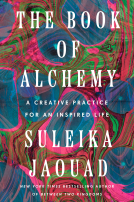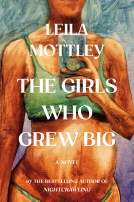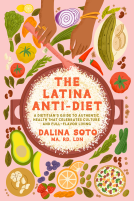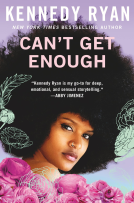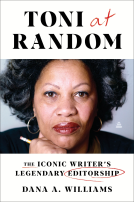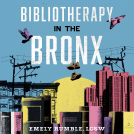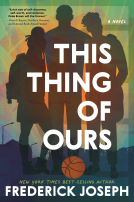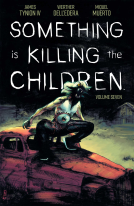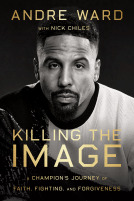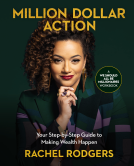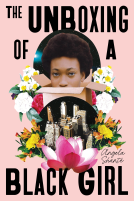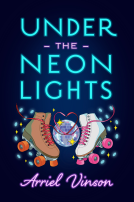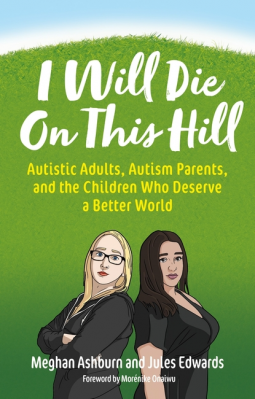
I Will Die On This Hill
Autistic Adults, Autism Parents, and the Children Who Deserve a Better World
by Meghan Ashburn; Jules Edwards
This title was previously available on NetGalley and is now archived.
Send NetGalley books directly to your Kindle or Kindle app
1
To read on a Kindle or Kindle app, please add kindle@netgalley.com as an approved email address to receive files in your Amazon account. Click here for step-by-step instructions.
2
Also find your Kindle email address within your Amazon account, and enter it here.
Pub Date Jan 19 2023 | Archive Date Feb 09 2023
Talking about this book? Use #IWillDieOnThisHill #NetGalley. More hashtag tips!
Description
There is a significant divide between autistic advocates and parents of autistic children. Parents may feel attacked for their lack of understanding, and autistic adults who offer insight and guidance are also met with hostility and rejection.
Meghan Ashburn, a mother of two autistic boys, and Jules Edwards, an autistic parent, were no strangers to this tension and had an adversarial relationship when they first met. Over time, the two resolved their differences and are now co-conspirators in the pursuit of disability justice.
This book unites both perspectives, exploring the rift between these communities and encouraging them to work towards a common goal. It provides context to dividing issues, and the authors use their experience to illustrate where they've messed up, where they've got things right, and what they've learned along the way.
Available Editions
| EDITION | Other Format |
| ISBN | 9781839971686 |
| PRICE | £14.99 (GBP) |
| PAGES | 256 |
Featured Reviews
as an allistic person, I wasn't even remotely aware of all the troubles that autistic people and parents face, mostly because of our ablesitic society. I learned so many things with this book and I most certainly will seek out more information about the autistic world.
I also learned many tragic facts, the passages about abuse, suicide and filicide especially broke my heart. these issues are not even nearly talked about enough.
I believe that this book does a great job on helping entering the autistic world, giving information in a simple and direct way, without judging or sounding condescending.
it's a 5 out of 5 in my book.
Huge thanks to Meghan Ashburn, Jules Edwards and Jessica Kingsley Publishers for this opportunity to read the advance copy of this book on NetGalley.
There are a lot of books about Autism, but I Will Die on This Hill is one of the most unique books I've read so far, and I truly believe this book could be life changing for many people. It is written in a conversational style, with love, passion, humility and a true desire to see a better world for all Autistic and disabled people.
What Meghan and Jules have set out to do, is try and bridge the gap between Autistic people and non-Autistic parents of Autistic children. I think everybody who's been on the internet in any Autism related space has witnessed, or been part of, the frequent divide between these two 'hills'. But, the point of this book is that everyone has the same root goal, which is a better life for Autistic children. Now, the idea of what a 'better life' IS, often becomes the root of the argument, but this book brings in ideas, resources and plausible solutions on how we can all better connect and work together on a shared goal.
I am going to be honest, this book is going to make various people feel uncomfortable. Because, you have to be willing to challenge your bias and your ego, and put those things aside. Even though I've been learning for years now, regarding Autism and being a better communicator, this book still provided me with valuable reminders and additional tips on how to better 'bridge the gap'. Being a late identified Autistic parent, like Jules, I often feel like I'm in the middle and sometimes not seen by either side. I feel like the mission of this book is something we need more than anything else. Because, when we stand together, we have a much better chance to making long lasting change.
This book made me cry. A lot. But, it made me cry, because I felt so seen. And, it made me cry, because I hurt for all the Autistic people who aren't given a fair chance in life by a narrow minded society, and the fight that Autistic, and other disabled folks, face every single day. And, if you're a parent who has been given limited information by doctors who refuse to challenge their bias, you are going to read things that make you say OUCH, because we know you love your child, but even when we love our children; we don't always make the right choices. Facing our well intentioned mistakes is painful, and that's okay to admit, but the important thing is being able to sit with our discomfort and grow from it.
There is absolutely wonderful selection of guest essays in the book from a variety of Autistic advocates. While most Autistic people tend to have SOME shared traits, not all Autistic people are the same. Just like all other humans! To this day, in the year 2022, there are still so many stereotypes that center around the white, cis-male viewpoint. Listening to the words of BIPOC, trans, nonspeaking and other multi-marginalized Autistic advocates is key in making sure we truly lift ALL Autistic people, and NOT just those with specific privileges. If we aren't working to lift those who need the most support, then we aren't truly seeking equity.
Who should read this book? Well, everyone, in my opinion! But, certainly the parents of Autistic children, and Autistic adults who want to help better the lives of Autistic children. Teachers should read this book. Grandparents should read this book. Your neighbor down the street should read this book. Anybody who wants an honest, loving, REAL glimpse into trying to work TOGETHER to better this world for Autistic people.. should read this book.
Thanks to the authors and NetGalley for an ARC of this book.
 Ira K, Reviewer
Ira K, Reviewer
This book talks about autism from a myriad of perspectives: autistic people, non-autistic parents of autistic people, autistic parents of autistic people, etc. There are also many other autistic people who contribute chapters to this book as well.
One of the most important messages of I Will Die On This Hill is that no one person is infallible or knows everything in the world. That’s a really important point when it comes to the autistic and autism community. This book helps with seeing both perspectives, from parents of autistic children to autistic adults who try to help parents.
I think the biggest theme of all that runs throughout this book is what misinformation can do to parents of autistic people, and autistic people themselves. This book shows very clearly how much pressure parents are under in general, and adding two tons of misinformation about autism on top of that [have you googled “autism” lately?] makes it impossible to figure out how to successfully support an autistic person, or even yourself. It’s about autism professionals’ dismissal of the innate instincts of parents to protect their kids from trauma. It’s about how parents’ concerns and gut feelings are dismissed because professionals continue to push the “gold standard treatment” of forcing autistic kids to mask and hide their distress. It’s about the continual dismissal of parents even when they are armed with information about co-occurring conditions and other supports their autistic kid may need.
I think the objective at the very core of this book is to let everyone know that we are all human beings who have all made mistakes before, who are all trying to do their best for themselves and others. That professionals are not infallible, and that even misinformation can lead an autistic parent of autistic kids to spout ableist ideas without realizing any of it. We are in a racist, sexist, patriarchal white supremacist system, and existing within that system affects us all. This book does a very good job of tying all of these ideas together.
The authors give a glimpse of parents who love their child, who are desperate to support them in any way they can, and who don’t have the information or the resources they need to do that. There is a sea of misinformation on autism, and both parents of autistic kids and autistic people themselves are drowning in it. It’s really refreshing to see personal experiences not just from parents of autistic kids, but autistic parents of autistic kids, who are centered in this book, and how misinformation also harms autistic parents and their autistic kids. Unfortunately, there are very few resources for autistic parents and how to navigate getting supports for their kid.
There is also the perspective of autistic adults, trauma, and making life better for future generations of autistic people. Jules Edwards mentions hating incremental change and talks about what incremental change looks like as an autistic advocate. Personally, as someone who got a lot of disagreement after publicly posting about what happened on Color the Spectrum (where a lot of things happened behind the scenes that I couldn’t talk about for many important reasons), I absolutely understand this perspective. A lot of other autistic advocates and I brought about change which involved a large organization awarding $1 million to autistic-led organizations, and even more important than that, actual autistic adult representation that millions of people watched. That still feels incremental to me, but in the grand scheme of our community, I found it to be a big win considering what we’re up against.
At the same time, so many autistic people were not happy with this strategy, and I want to reiterate that I wasn’t happy either. In fact, I don’t think any of us were. It was simply the only way, we believed, to create some sort of progress within our community. In fact, I could say it made most of our lives miserable for a month. It’s honestly not something I ever want to experience again. Incremental change isn’t fun or exciting – it’s often tedious and frustrating. This book does a good job of explaining that.
This book also explains how autistic adults may feel when interacting with misinformed and defensive parents. You know, trying to make change hurts. It hurts to witness the dehumanization of autistic people. It hurts to see parents and caregivers abusing their children to try to “cure” them. Autistic advocacy is not sunshine and roses – it is constantly being reminded of what position you are in in this world, that people would rather you not exist at all than to exist in this world as how you actually are – autistic. It’s absorbing the pain, isolation, gaslighting, and othering from the stories that other autistic people tell you about their lives. It is trying to make peace with how wrong the world is while making just a dot of change here or there, when you know that’s not going to be enough. It is difficult watching parents be preyed on by biomedical companies and ABA therapists, only spurred on by the love for their kid, not realizing the trauma that person will have to comes to terms with 20 years later – trauma that I’ve seen first hand in other autistic adults.
This book helps reconcile a lot of these feelings I have about where I am and what I’m doing. It really lays out these ideas clearly for parents who may be just starting to learn about autism, who may have just gotten an autism diagnosis for their kid, and who may not know they are autistic themselves.
I highly recommend this book for anyone who wants to understand how misinformation can separate groups within the autism community. I hope by reading this book, they realize that what we all need to fight is misinformation about autistic people and the system that we live in.
I will warn you that it’s not an easy read. Note that the authors do say up front that you may want to throw this book across the room while you’re reading it, and I think they’re right about that. I would say that it’s still very much worth the read. Read at your own pace and your own time, mull things over and then come back to it, or write notes while you’re reading it. It will make you a better parent and/or a better advocate – whether autistic or not.
“Meeting our children where they are doesn’t mean giving up on them. It means seeing them as a whole person, broadening their access to communication, helping them figuring out their unique learning styles, helping them figuring out their sensory profile, and putting accommodations in place. When we work with our children instead of against them, instead of trying to fix them, we end up with happier children. And that is a goal worth striving for.” - Meghan Ashburn, I Will Die On This Hill
Every parent of an autistic child needs to read this, and anyone who is autistic themselves should too. Ditto for people who are clinicians, specialists, teachers, and support staff.
Autistic people will feel affirmed and seen and parents and professionals will receive many anwers to burning questions or learn new helpful information.
This book centers autistic adults and our knowledge while showing empathy and compassion to parents of autistic children wanting to learn more.
It's intersectional, inclusive, Neurodiversity affirming, and leaves NO ONE in our community behind. Phenomenal. 5 stars.
Jen Smits, Contributer, Spectrum Women: Walking to the Beat of Autism
This is the kind of book I couldn't put down once I started.
During the years following my own autism diagnosis I often walked against a wall when it came to Autism Moms™. Why didn't they listen to autistic adults? Why did they keep bringing their children to ABA while they were told repeatedly that it is torture to autistic children? etc. This book adresses this communication gap in a wonderful way, making it a must read for both the mothers of autistic children and autistic adults.
The only real downside to this book I see is the fangirling over Why I Jump (See my own review on the book here: https://www.goodreads.com/review/show/2974704414). While I see how this book changed the way Meghan looked to learning from autistics, and it is wonderful that it did, I do not think this is a book that should be read by everyone. As my own review states, it is too generalizing. I am fine not going back to the prehistoric watery mess, thanks.
I got an ARC of this book.
Woah.
WOAH.
Woah.
I have been seeing this book pop up in my facebook feed a ton. I have been following one of the authors for a while now, because of her writing. So I am not surprised that she has put out a book. She is such a clear and thought out writer. I knew I needed this book. The other author was new to me. She runs a book club on facebook, so how have I not engage with her before? Books are my special interest (obviously).
I am autistic. I am a parent. I am a parent of an autistic teenager. So originally I got a copy so I could be a better parent to the youngest, but I learned more about myself than I did about being a better parent for him. I already know I would fight to the death for him and there would be zero stopping me. I would be the one making custom shirts for every event. So I already fit the loving parent model this book is for. I was ready. I was especially excited to see an autistic parent writing. It gave me hope that this would not be a book that would try and sell me a cure. My kid does not need to be cured. He might need a shower, but he is a teenage boy. This book even talks about the profitability and the community aspect of the cure aspect of the autism mom sphere. This book gave me some insight into my own step-mom, who very hard bought into the cure aspect with my little brother and denied that I could be because I am not a cishet little boy. Who gets diagnosed was also talked about. Just every little detail of this book was amazing. It really is the best book.
Did you know that autistic people are more sensitive to hot and cold? I am a furnace. I can’t have hot food or be in even relatively warm conditions without pain. I didn’t know there was a reason outside of just my luck. I learned little things like that throughout the book. I learned a lot about AAC. I will admit, I knew pretty much nothing before. It is one of the areas I have been struggling to learn. So if you are in the same situation, this will give you some of the words you need to actually dive in and learn. What I knew before was because of another person in the author’s activism and blogging circle (who also has a book coming out soon. I am so excited to try and get a copy!). This book has given me a new book club, more people to follow, and just so much more information. I went in with high hopes and they absolutely crushed them.
I was maybe three chapters in when I started recommending this book to others. One author fought to get her kid diagnosed, because no one believed her. That is what my coworker is going through with her youngest. She has been fighting since her kid was two. I told her and there is already a pre-order in place. Pretty much every person I know with an autistic kid, no matter how old, has been poked about this book. Then I started in on the autistic people (quite the overlap, which is not surprising at all, which is also an amazing point that is brought up in this book!). I could gush about this book for hours, and I have.
It is so well written, direct, honest, and powerful. Every point made an impact. Every detail was important. This is one of the top non-fiction books I have ever read. It is the best book about being a parent, autism, and/or how to be a good person. 100% you need this book, even if you aren’t a parent. It gives so much information and heart that it will make you a better person.
 Marcie A, Book Trade Professional
Marcie A, Book Trade Professional
I Will Die on This Hill is such a gift for all of us who have been clueless and way too speculative and assuming about autism. I can’t guarantee that this is going to make you a better advocate—it might do that. But more importantly, Ashburn and Edwards’ honest and unsentimental book will make you a better human being and, therefore, a better neighbor, better educator, better family member to Autistic adults, Autism parents and the children who need us all to do better.
Marcie Alvis Walker, creator of Black Coffee with White Friends
 Milena B, Reviewer
Milena B, Reviewer
This is a book that the autistic community has needed for many years. There are multiple reasons why I will be recommending it. It's written in plain language, it's broken down in sections that can be read individually or as part of the big idea. This makes it more accessible. Even though there is a lot of information supported by academic research, it's not an academic text. It was written for the community and it will greatly benefit us. This doesn't mean it is not relevant for professionals. This book is just as valuable for any professional working with the autistic population. Having just finished an interprofessional fellowship in neurodevelopmental disabilities, I really hope all of my colleagues will read it because I can't think of one who will not benefit from the knowledge.
It's the perspectives of a non autistic parent of autistic children and an autistic adult who is also a parent of autistic children. They are open and honest about where they started and how their understanding developed. They are realistic about the conflicts, and they offer real advice on how to navigate community interactions. There are a lot of fantastic resources listed at the end of each chapter, and each includes a contribution by a self advocate, some of whom are writers I already knew of, and including autistic BIPOC and non speaking/AAC using self advocates.
And yes, they also talk about race and disability. What does race have to do with disability? Well, a lot, it turns out. A person's experience of disability is so thoroughly shaped by their racial background and that of other marginalized identities that you cannot separate them. There is not a much literature that addresses this well.
There are other important ideas that are not mentioned in a lot of books about autism, such as the different models of disability, the stereotyping in the medical community and overall culture, the concept of presumed competence, the dignity of risk and likely others.
I was provided an advance copy and this is my honest review. My paper copy is already preordered.

